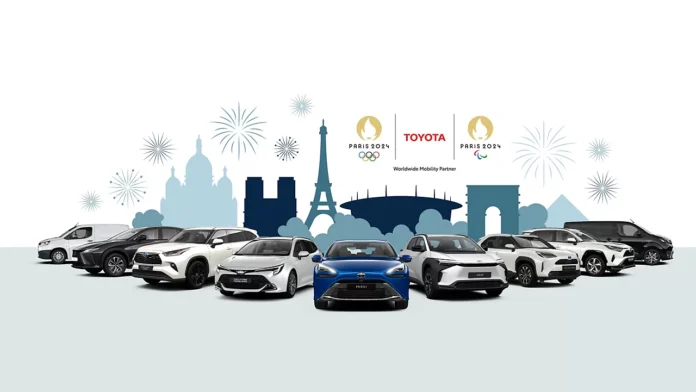
Toyota, the global automotive giant, has announced it will not renew its top-tier sponsorship contract with the International Olympic Committee (IOC) after the Paris 2024 Games.
The decision marks the end of a significant partnership that began in 2015 and spanned four Olympic Games: Pyeongchang 2018, Tokyo 2020, Beijing 2022, and Paris 2024.
The Japanese automaker, founded by Kiichiro Toyoda in 1926, has been a cornerstone sponsor for the IOC, contributing over 100 billion yen (approximately $637 million) for the duration of their agreement.
This substantial investment was intended to bolster the IOC’s mission and enhance the visibility of the Olympic movement.
However, despite this substantial financial support, Toyota has chosen to continue its sponsorship only after the upcoming Paris Games.
The decision comes amid reports of disagreements between Toyota and the IOC over policies related to Olympic athletes and the allocation of funds provided by sponsors.
While neither Toyota nor the IOC has officially confirmed these reasons, industry insiders suggest that these tensions have played a crucial role in Toyota’s decision to withdraw.
Despite ending its sponsorship with the IOC, Toyota has expressed its commitment to continue supporting athletes, albeit through different avenues and strategies.
This shift indicates that while Toyota remains dedicated to promoting sports and athleticism, it seeks to do so in a manner that aligns more closely with its corporate values and strategic goals.
Rumors have also surfaced regarding Toyota’s intentions to maintain its primary sponsorship deal with the International Paralympic Committee (IPC).
This move, however, has yet to be well received by the IOC, which traditionally discourages separate sponsorships for the Olympic and Paralympic Games.
The potential continuation of Toyota’s support for the IPC underscores the company’s focus on inclusivity and support for athletes with disabilities, reflecting its broader corporate philosophy.
Toyota’s decision is significant not only because of the financial implications but also due to the symbolic weight of their partnership.
As the world’s largest car manufacturer, Toyota’s association with the Olympics has been seen as a powerful endorsement of the Olympic brand.
Losing such a high-profile sponsor could prompt the IOC to re-evaluate its sponsorship strategies and policies to ensure it continues to attract and retain top-tier sponsors.
Toyota’s exit from the IOC sponsorship landscape does not diminish its influential role in the global automotive industry.
In 2021, the company surpassed General Motors to become the world’s largest automaker by sales, a testament to its robust business model and global appeal.
This strategic pivot in its sponsorship approach is likely part of a broader strategy to optimize its marketing investments and enhance its brand positioning in the rapidly evolving automotive market.
As the Paris 2024 Games approach, all eyes will be on how the IOC manages the transition and what measures it will take to fill the void left by Toyota’s departure.
Meanwhile, Toyota’s future sponsorship endeavors, particularly with the IPC, will be closely watched as they unfold. They will offer insights into the evolving dynamics of sports sponsorship in the 21st century.
This article was created using automation technology and was thoroughly edited and fact-checked by one of our editorial staff members